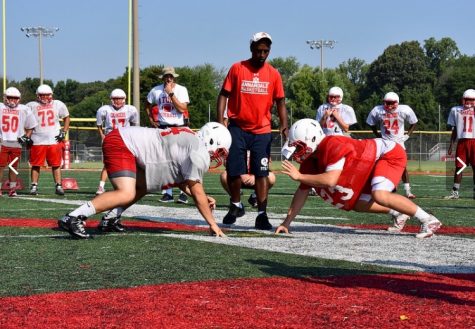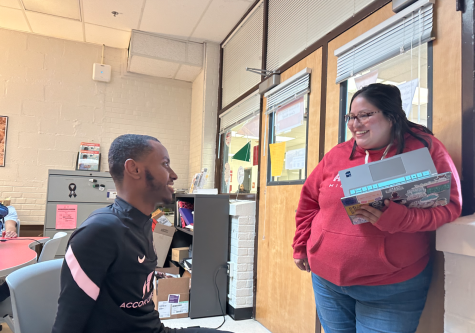5 tips when returning back to school
After two months away, going back to school is going to be a big adjustment. People spent their summer breaks traveling, playing sports, and most of them weren’t studying. Trying to throw yourself back into a full time academic schedule will make a lot of changes to your sleep schedule, diet, exercise, stress, and immune system.
1 GET A GOOD NIGHT’S REST
With school being back in session, students can no longer stay up until four in the morning and wake up at noon. Returning to a proper sleep schedule is the most important step in adjusting to being back in school. Having proper sleep habits is one of the most difficult things to adjust to when returning to the full academic schedule.
During the summer, teenagers tend to not use as much energy as they do when they are attending six hour school days plus sports and extracurriculars. The National Institute of Health encourages teenagers get between eight and ten hours of sleep per night in order for their brains to be the brightest they can be.
Having a good night’s rest will help with acquiring and memorizing information which is really helpful for those fast paced honors and IB classes.
2 eat RIGHT Eating food at six different times throughout the day and having that midnight snack isn’t exactly the best schedule for school.
“I eat throughout the day during the summer but once i’m in school, I eat more consistently and at the same times everyday,” senior Grace Hatch said.
Having a consistent time to eat meals everyday will help you maintain a more organized and healthy schedule.
It is also extremely important to have a good breakfast every single day. A healthy and energizing one is preferred as it will help awaken your brain and your body for the day ahead.
Foods with eggs, avocado, walnuts, and almonds give your body extra brain power, as well as help maintain and preserve brain function. These foods will also help restore memory and prevent brain degeneration.
Skip those late night meals that occur after your metabolism slows down. You are unable to burn off calories and fats consumed at night because you just go to sleep afterwards. That midnight snack just turns to fat and will not help you fall asleep any easier.
3 MANAGE YOUR stress
As school begins, the stress of getting good grades, finishing your homework, and getting everything else done starts to become overbearing.
Having a balanced and organized schedule helps with maintaining stress. Exercise is also a good stress reliever because it produces endorphins which can help you sleep better at night, in turn making you less stressed.
Be sure to complete your homework early and use your free periods to get your work done. Having it done early will prevent that stress and help you feel accomplished and less worrisome.
4 ALWAYS GET A GOOD WORKOUT
Many people spent their summer treading water in the pool or ocean, but once those pools close and students are back in school, that is no longer an option. Working out consistently is extremely important, don’t squeeze in the midnight work out at the gym.
Work outs in the morning or in the early afternoon will help keep you awake for the day but, not keep you awake too long. With classes, studying, homework, and clubs, finding time to workout can be a little complicated, but you cannot sacrifice your exercise in the midst of everything else going on. Joining a sport or taking an exercise class is a good option because it will force you to workout at specific times. Having a partner to workout with can make it much more fun and you can motivate each other.
Whatever it takes, making sure you get your weekly cardio and strengthening in is important in maintaining a healthy lifestyle.
5 WATCH OUT FOR GERMS
As summer comes to a close, the warm, sunny weather will come to a stop. Be sure to look at the weather reports as it tends to be different every day in NOVA. If it’s raining, have a rain jacket and warmer clothes because being wet in the cold will bring you a nasty cold.
Hundreds of students will be at school, every student has a lot of germs and not all of them are washing their hands.
“I don’t normally get sick, but when I do, it’s usually a virus I caught from school,” Hatch said.
In order to prevent being sick, always wash your hands before you eat and after you use the restroom, and try to prevent touching your face as much as possible.


Senior, Rachel Shogren has been on staff with The A-Blast for four years. She is the Health Editor this year and was previously the Academics Editor and...






